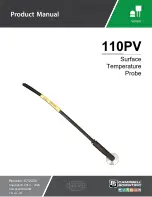
7
1.3.4 Report Designer
ADAMView
Report Designer provides a configurable environment in which users can define the contents
of a given report. It collects the required data at specific time intervals and these reports are printed
automatically at a user-defined time. The interfaces provided in Report Designer may also be used to
select and print reports manually.
ADAMView
Report Designer includes five major functions: data collection, report format configuration,
report scheduler, report generation and alarm report generation.
Data Collection
Data collection function creates database files (.DBF files) for each defined TAG point at a user-
specified time. Data collection function is designed for report generation. The shortest time interval
for data collection from a given TAG point is 10 minutes. If needed, high-speed data collection is
accomplished through other trend data collection functions.
Report Format Configuration
Report format configuration function provides user interface dialog boxes, which allow users to set up
the report format and report print time. Report format entries are organized in a table form and users
enter text or specified keywords to define each table column. Information from each report format is
saved to a format file, and extracted during report generation.
Report Generation
Report generation function combines the format file and data collection database file to produce a
printed report. At the moment, reports are limited to tabular format report. A graphical report with
daily trend output will be developed in the future.
Report Scheduler
Report scheduler sets the time at which reports will be generated. At a user-defined time, report
scheduler calls the report generation function to generate the report. Report Scheduler also informs
users of report printing status.
Alarm Report
Alarm report generation function produces equipment fault reports. These reports provide informa-
tion on time of fault occurrence, operator acknowledgment and recovering records.













































